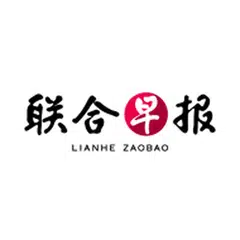Didi COO and family called 'traitors': Chinese tech entrepreneurs now public enemies on social media?
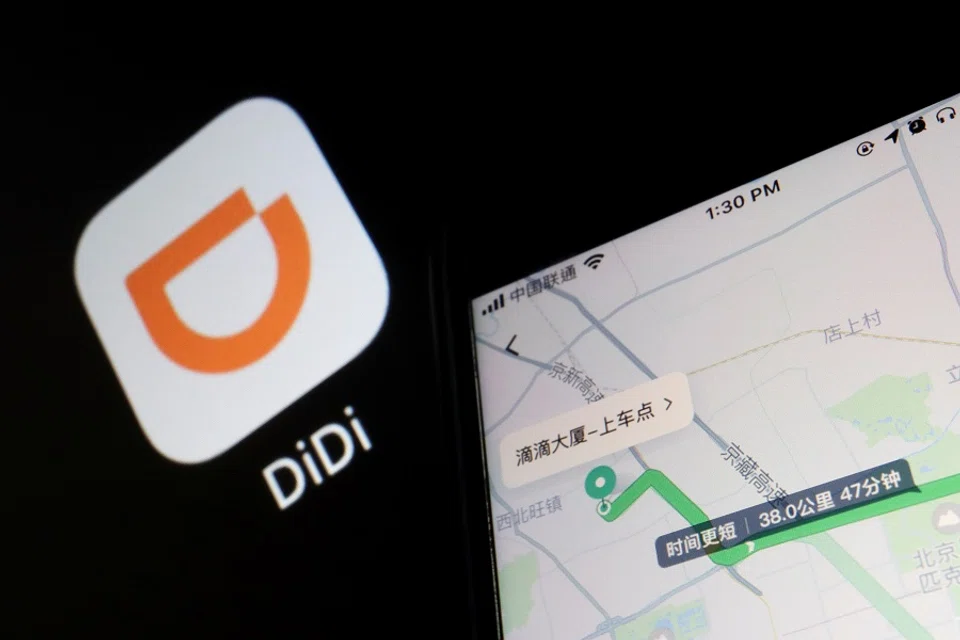
Two days after Chinese ride-hailing giant Didi Chuxing went public in the US, it was accused of collecting and misusing personal data in violation of cybersecurity laws. As a result, the Didi app was ordered to be removed from app stores in China.
Based on official statements, the takedown order has nothing to do with Didi chief operating officer (COO) Jean Liu Qing or her father Liu Chuanzhi, the founder of Lenovo. However, because Didi is involved in the sensitive issue of "being listed in the US", the pair has come under the glare of public opinion. Chinese netizens even listed out the family's "sins" and called three generations of the Liu family "traitors to the country".
Why are netizens calling the Lius a family of traitors?
Some netizens on Weibo scolded the family by composing a couplet. The first line read: "The father Liu Chuanzhi voted for Qualcomm on 5G, claimed he was not running a Chinese enterprise, and backstabbed mainland Chinese consumers". The second line read: "The daughter Jean Liu went from a Didi driver rape-murder controversy to selling data, betraying the country and having the company's app taken down". The horizontal line summarising the couplet read: "A house of traitors."
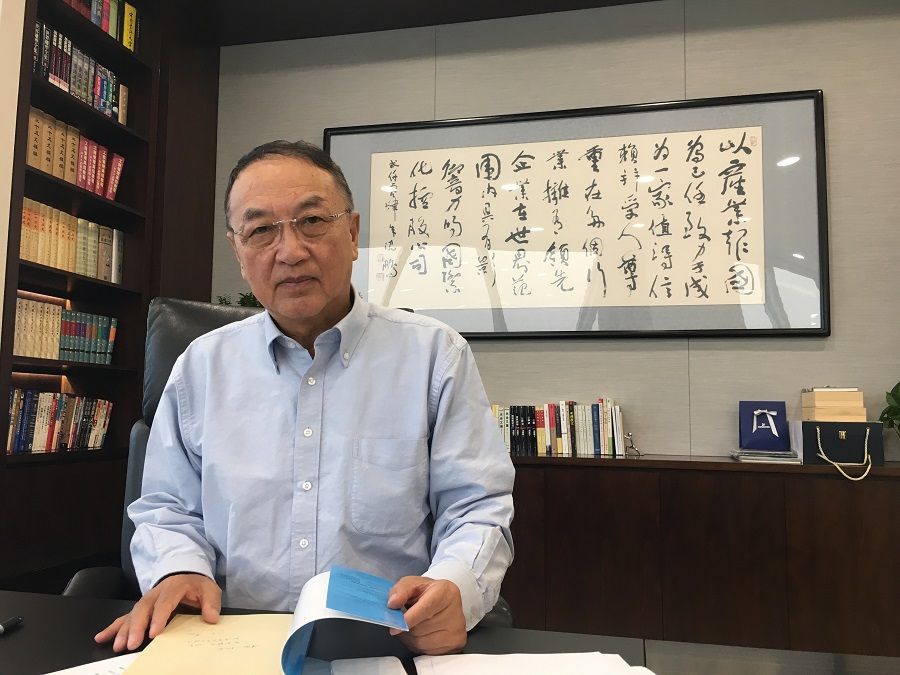
Amid Didi's app takedown controversy, the first thing that netizens did was to dig up a past decision that Liu Chuanzhi made in 2016. Once dubbed a godfather figure in China's private sector, Liu Chuanzhi voted for technology from the US's Qualcomm in a 5G standards meeting.
Lenovo voted for Qualcomm to oppress Huawei?
According to reports, at the voting session organised by 3GPP back in 2016, Lenovo voted for LDPC codes, which were spearheaded by Qualcomm, in the first round of voting. It then voted for Huawei's polar coding in the second round. But because fewer people voted for Huawei's polar codes than for Qualcomm's LDPC codes, Huawei ultimately lost to Qualcomm, and LDPC gained the full share of the 5G mobile broadband market.
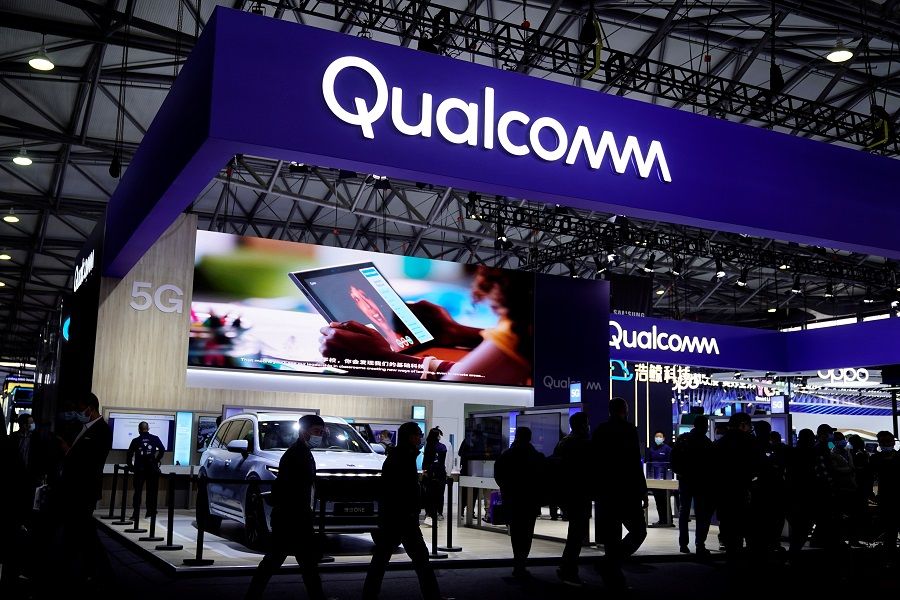
Actually, the voting controversy and traitor accusations of Lenovo are not new. Chinese netizens attacked Lenovo two years after the incident in 2018. Then, Liu Chuanzhi, along with Lenovo chairman and CEO Yang Yuanqing and president of Legend Holdings (parent company of Lenovo) Zhu Linan wrote a joint letter clarifying that there was neither anything wrong with the principles behind Lenovo's vote nor the way it was executed.
Back then, Liu Chuanzhi even said that calling Lenovo a traitor was not only tantamount to destroying the livelihood of everyone at the company, but a ploy to set them up for a lifetime of humiliation. He harshly criticised the move as being a planned conspiracy with malicious intent.
Huawei, as the other party involved, supported Lenovo on two occasions back then. It said that 3GPP had selected LDPC as the official coding method for data while polar codes were the choice for control information, which made Huawei a part of setting 5G standards. Huawei thanked Lenovo and its various partners for their constant support and also expressed its willingness in working with Lenovo and other partners in the industry to promote the healthy development of the 5G industry.
Liu Chuanzhi also said that he had a phone call with Huawei founder Ren Zhengfei, and the latter told him that there was nothing wrong with Lenovo's voting choices. They unanimously agreed that "Chinese businesses should unite and brush aside attempts to sow discord".
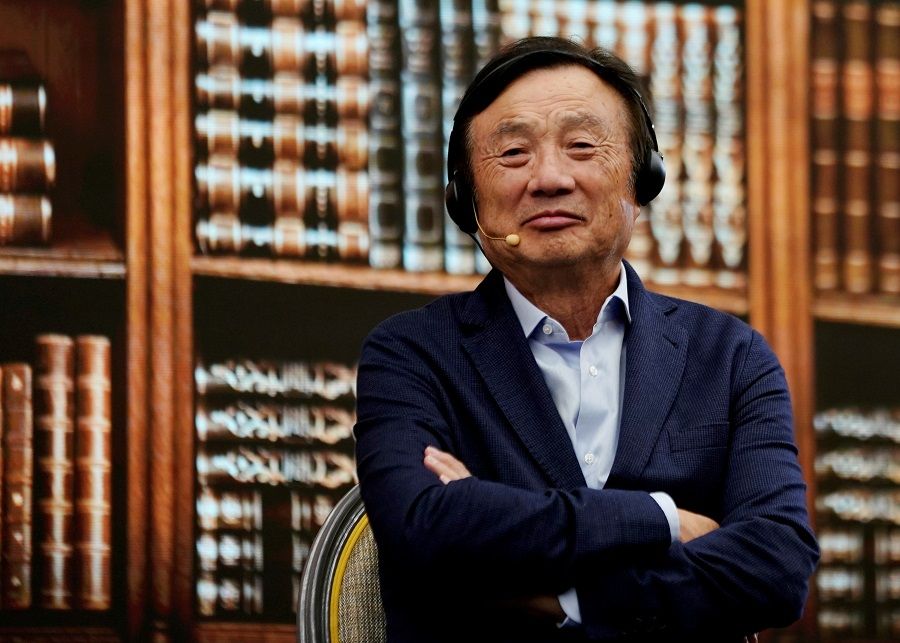
Liu Chuanzhi and company's joint letter was supported by many industry leaders including Jack Ma, Zhou Hongyi, and Robin Li. Various state media also reported and reposted the statement. Thanks to these efforts, the public opinion storm soon subsided.
Lenovo not going into chip development led to China's chip shortage?
Netizens also dug up a dispute that Liu Chuanzhi and former Lenovo chief engineer Ni Guangnan had regarding Lenovo's strategic direction. Netizens claimed that if Liu Chuanzhi had listened to Ni's suggestion and took Lenovo on a technology-centred path focusing on chip development instead of a trade-centred path focusing on computer sales, China's chip industry could have grown stronger long ago and would not be stuck in its present predicament.
Liu Chuanzhi responded to this in an interview in September 2018, saying that the foundations of the private enterprise were not sturdy enough to do so. "It may take many years of investment to start generating returns and it is very easy to make the wrong decisions," he said. "For a company with only 1 billion yuan (US$140million) of profit, we lacked the stamina to splurge 2 billion yuan (US$280 million) on developing chips."
Prior to this, he had explained that in 2001, Lenovo's total annual income had just hit HK$19.2 billion with a net profit of HK$1.026 billion. This meant that Lenovo needed to fork out its entire annual profit to invest in one-sixteenth (US$1 = HK$8 at the time) of a production line, and this excluded patent fees. Even if the company did not purchase a patent, it would also need to pay several millions of RMB in research and development expenses. No wise enterprise would have embarked on such a reckless endeavour. Liu Chuanzhi emphasised that this would not have been a patriotic move but a disastrous one. Others in Lenovo's position, whether it was Tsinghua Unigroup, Tsinghua Tongfang, or other companies in the world, would have made the same decision.
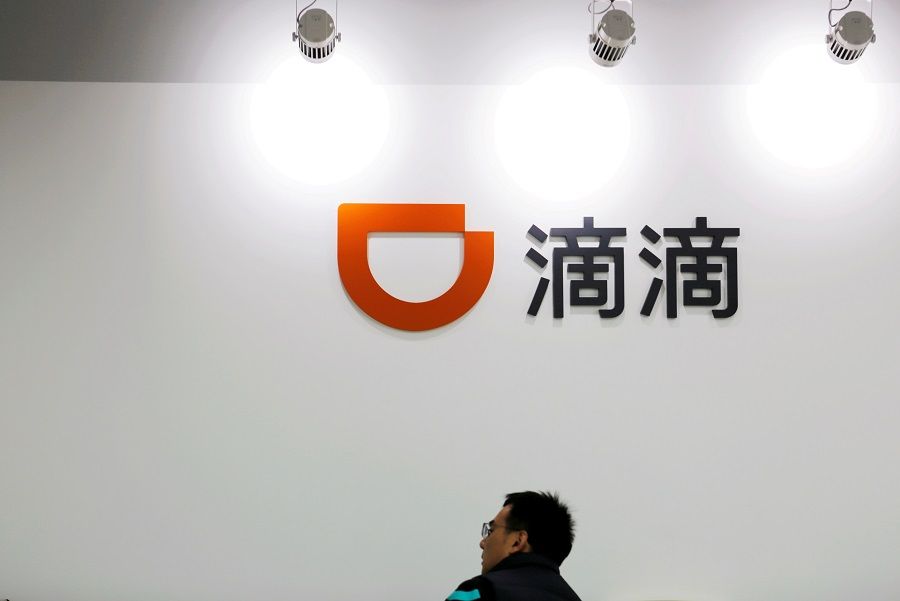
Privatisation of Lenovo met with doubts
Because Didi's app was taken down, an old article made the rounds on the internet again. The article said that there is a "Taishan Club" (泰山会) in China like the Freemasons or the Skull and Bones secret societies. This club is described as a modern Donglin Academy that is almost like a local conglomerate in which all of China's most influential tycoons are members of. This club's bona fide chairman, Liu Chuanzhi, was questioned for his practice of "privatising" state-owned enterprises. Liu Chuanzhi's father, Liu Gushu, also became the target of attacks.
Netizens dug up old information and found that in April 1988, Lenovo, together with a technology transfer company under the China Council for the Promotion of International Trade, and Hong Kong's Daw Computer Systems had established a joint venture - Lenovo Hong Kong.
Lenovo and the technology transfer company, both state-owned enterprises, held 67% of shares, while the Hong Kong side held 33%. While it was still a joint venture controlled by a state-owned enterprise, the Hong Kong side bought shares as a "foreign investor" and the investment from the technology transfer company - a Chinese-funded company registered in Hong Kong - was considered as "foreign capital". In this way, Liu Chuanzhi completed the process of going from being a full-fledged state-owned enterprise to one that is split between three parties, providing Lenovo with the conditions for its privatisation process. Back then, the chairman of the Chinese technology transfer company who played a key role in the event was Liu Gushu, Liu Chuanzhi's father.
Liu Gushu handled licensing of Vitasoy in mainland China
Netizens also found that Liu Gushu is involved in an ongoing story in Hong Kong.
After a Vitasoy employee stabbed a police officer and then killed himself on the CCP anniversary on 1 July, the company said in an internal document that the employee "unfortunately died". This sparked unhappiness among the internet community in mainland China, and some stores even removed Vitasoy products from their shelves.
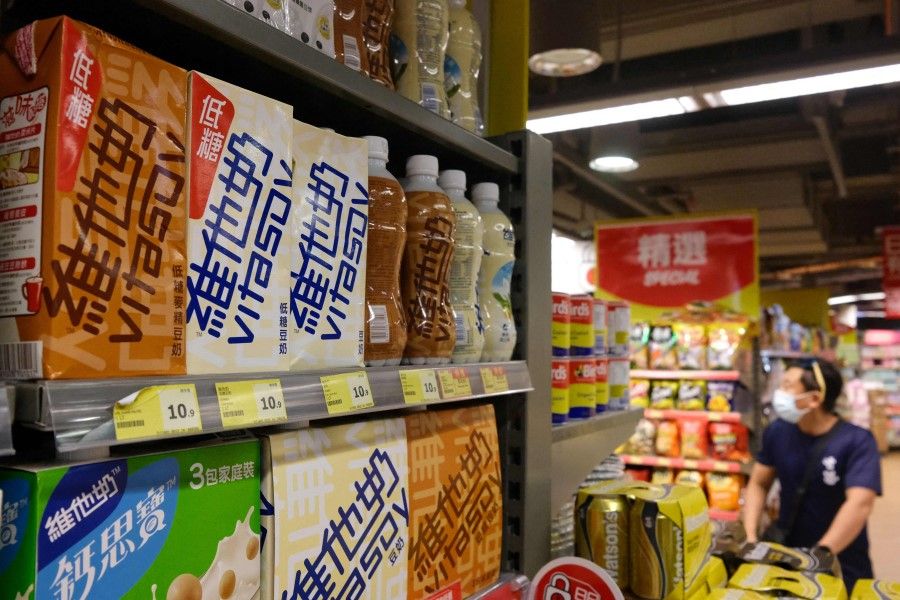
What few realise is that the licensing for Vitasoy in mainland China was handled by Liu Gushu. This was revealed in 2016 in the 5th episode of the CCTV documentary The Glory Of Innovation.
In his eulogy to his father upon the latter's death in 2003, Liu Chuanzhi had also said: "You have successfully handled the Disney case and the Vitasoy case. The success of one case after another has given foreigners confidence in the brands carried by Hong Kong Chinese patent agencies, confidence in the implementation of the Chinese Patent Law, and confidence in the sincerity of China's reform and opening up."
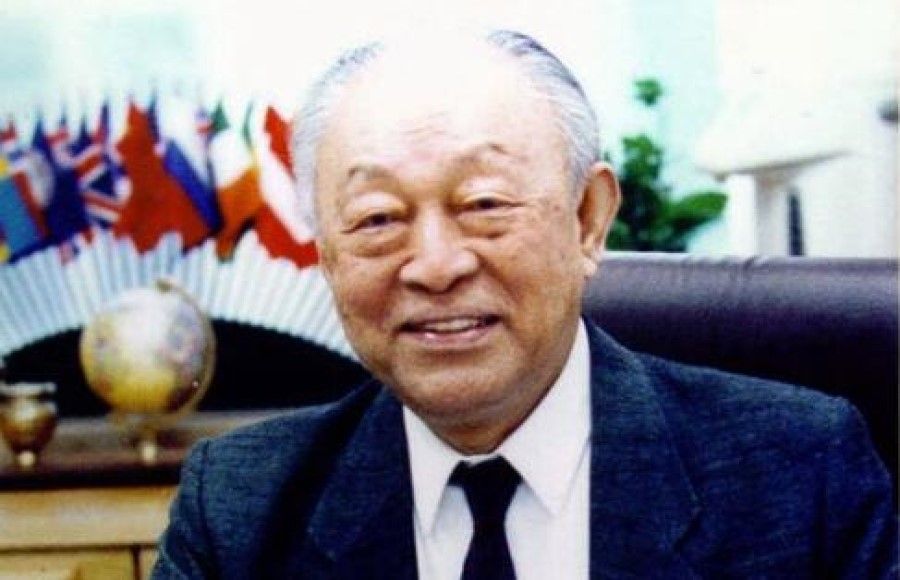
According to Baike, Liu Gushu was one of China's first intellectual property lawyers. He founded China Patent Agency (Hong Kong) Ltd and the All-China Patent Agents Association. He put a lot of effort into the implementation of China's Patent Law, and the development of the patent agency sector, winning a top reputation and wide respect.
At the moment, Vitasoy has not shown any connection with "Hong Kong independence", but the timing of the stabbing and the removal of Didi, as well as the fact that Liu Gushu was implicated, have led to a reversal of opinion about him. On social media such as Weibo, positive assessments of Liu Gushu, who passed away a long time ago, have been replaced by "traitor" and other judgemental terms.
It may not be fair to these entrepreneurs and is also no good for the country's growth.
Jean Liu's halo fades
As for Liu Gushu's granddaughter Liu Qing, or Jean Liu - who was previously a managing director at Goldman Sachs Asia and was involved in the Lenovo voting controversy in 2016 - the assessment used to be positive.
"Better than her predecessors", "the talent of Peking University", "the star of Harvard" - these accolades were heaped on this second-generation scion because she did not go into the family business and get a high salary as a matter of course.
The story goes that after Jean Liu graduated from Peking University with a bachelor's degree in computer science, Liu Chuanzhi kept her out of Lenovo, but she was not demoralised and went to Harvard to study. After graduating, she worked her way up in Goldman Sachs Asia to become its executive director in six years then managing director in 2012.
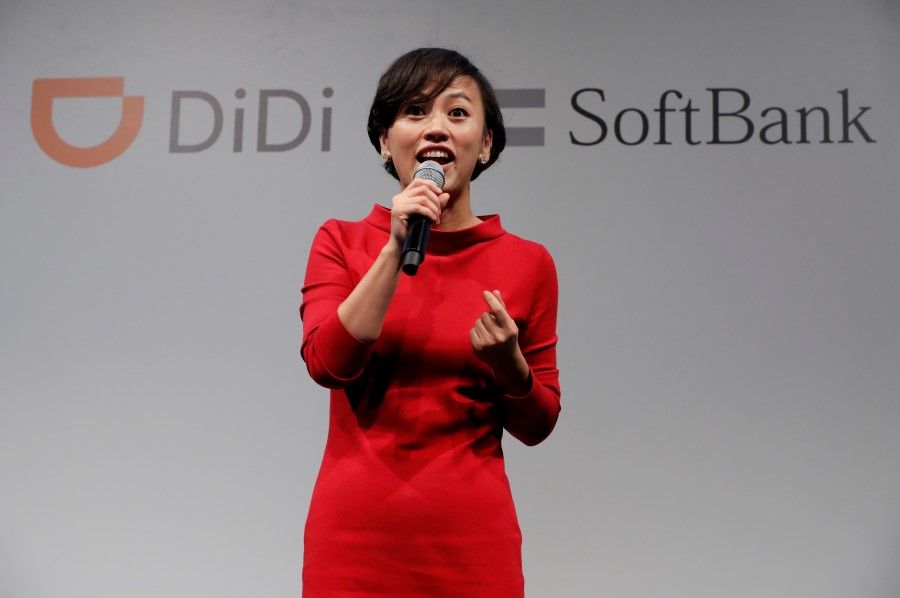
In 2014, Jean Liu gave up her cushy position in Goldman Sachs to join Didi as its COO, and led the company in achieving an all-time record amount of financing for a non-listed company. The following year, she became president of Didi, establishing her leadership position in the sector.
However, misfortune struck as she was diagnosed with cancer in 2014. But even as she fought her illness, this determined woman remained fully committed to her work, and took only three months from treatment to recuperation. In 2017, she divorced and chose to bring up her three children as a single mother; in 2018, there were two cases of Didi drivers raping and killing female passengers, and the company was called in by the authorities and advised to implement changes. Now in 2021, the work that she loves is facing unprecedented tests.
Chinese online companies face the impact of domestic nationalism
Immediately after Didi's low-key IPO in the US, it faced a security investigation by the Chinese authorities. New user registrations have been suspended, and the app has been removed, while the many online rumours swirling around have led to an increasing number of questions about Didi.
First, there were reports that Didi got into trouble because it leaked sensitive location data pertaining to national security to the US; then, netizens looked at Didi's corporate structure and found that an independent director Adrian Perica graduated from West Point and was previously an officer in the US army.
Didi will not be the last company to go through this, nor will the Liu family be the last. Such controversies will keep surfacing.
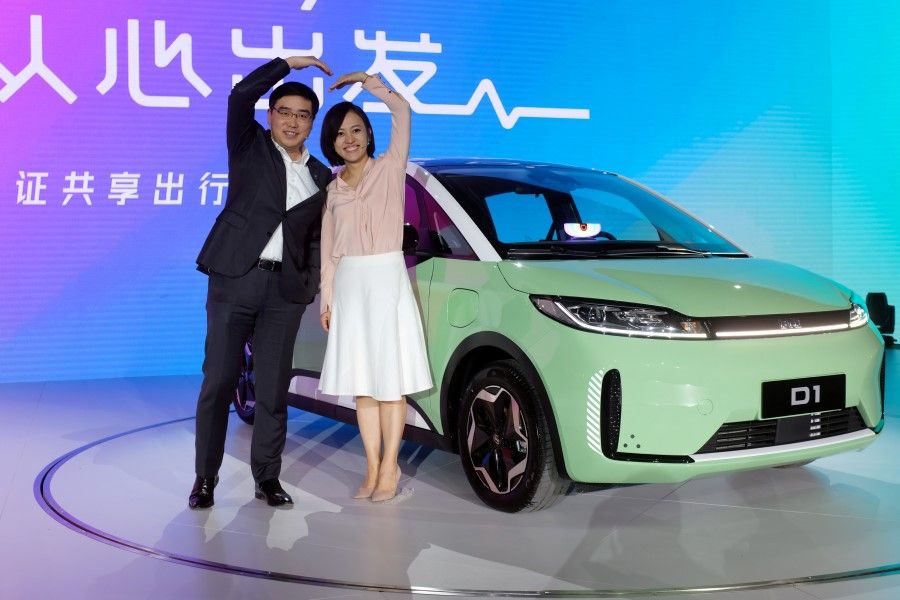
With China-US relations so tense, it is shocking enough to netizens to find that an American is an independent director in Didi with access to core data; that this person used to be with the US army is definitely sensitive. Questions like "Was he funded by the US army?" and "Is he from the CIA?" surfaced online. Furthermore, this American was found to have previously worked in Apple, in charge of hardware, software, and services, so it would have been all too easy for him to access sensitive information in Didi. And just like that, netizens pieced this information together to form an image that "Didi is selling national interests", and Jean Liu - like her father and grandfather - became the subject of criticism as a third-generation traitor to the country.
With all sorts of comments circulating online, many views are just baseless speculation. To label three generations of the same family as traitors and engage in personal attacks in a rush of nationalistic sentiment before the truth is known would in fact blur the issue. It may not be fair to these entrepreneurs and is also no good for the country's growth.
One can only say that Chinese internet giants like Didi have to face the uncertainty resulting from the China-US conflict, as well as the impact of the strong nationalism within China. Didi will not be the last company to go through this, nor will the Liu family be the last. Such controversies will keep surfacing.
